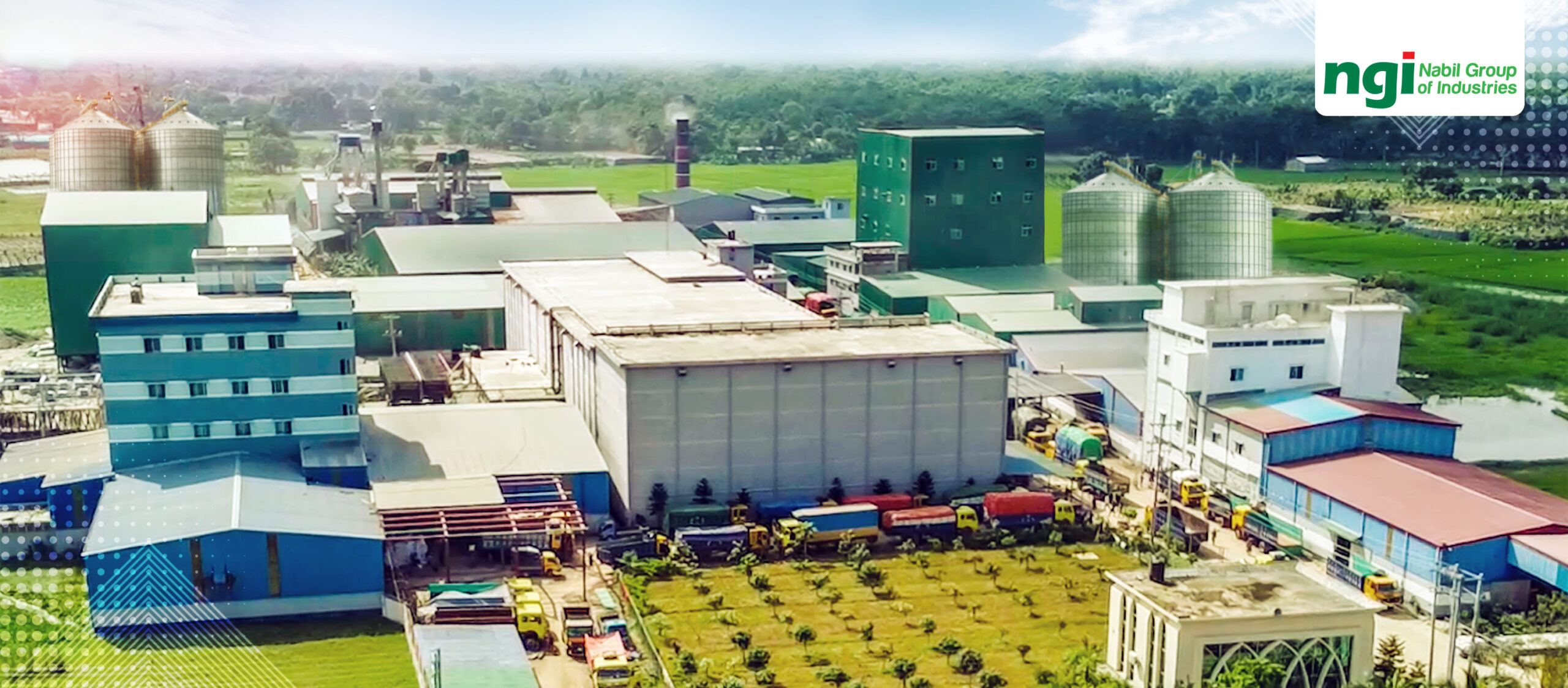In 2015, Bangladesh was elevated to the category of a lower-middle-income country, and it is currently on course to remove itself from the list of the United Nations’ Least Developed Countries. Bangladesh is currently the 41st largest economy in the world, with a gross domestic product (GDP) of more than $305 billion. According to projections, the size of the economy might potentially quadruple in the not-too-distant future at this point. Prominent businessmen have demonstrated that Bangladeshis may achieve prosperity as businesses. Nabil Group is one of them who took the stand to take forward Bangladesh through business, and now it is presently among the most rapidly expanding enterprises within the food-commodity sector in Bangladesh. Enterprises are the primary catalyst for any nation’s economy. The prosperity of enterprises can propel national progress, facilitate equitable growth, and generate possibilities for employment.The Nabil group’s contribution to ameliorating the economy of Bangladesh is immensely commendable.
The Nabil Group of Industries started its business venture in the early period of 2006,led by Shimul Enterprise. Shimul Enterprise, renowned for its dominance as a primary provider of components to Bangladesh’s most illustrious feed mills, laid the groundwork for the quick expansion. The Nabil group expanded within 2010 as it had already established a number of significant businesses. Nabil Group significantly contributes to the national growth, comprising 22 enterprises, featuring a Flower Growing Mill, Grain Mill, Bean Mill, Feeding Mill, Cold Storage, Layer Farm, Livestock Farming, Trading, Jute Mill, the Seed, and tissue cultivation operations.
Usually, there are four categories under which numerous intuitions of nabil group works. Those are Nabil trade, Nabil agriculture business, Nabil food and beverages, and Nabil service sectors, among others.In the Nabil trade venture, there are institutions like Shimul Enterprise, Nabil Trading, NGI Trade International, etc. Under Nabil agriculture business, Nabil Feed Mills Ltd., INNA Agrotech Ltd., Naba Crop Care Ltd. I have been working successfully.In Nabil food and beverages,institutions like nabil auto rice mills,flour mills, dal mills, and edible oil mills are running. Nabil Group of Industries also started their business in the service provider sector. Following this, they vindicated Nabil Transport, Nabil Cold Storage, Reza Cold Storage and Anuara-Zahan Box Foundation.
Nabil Group started its business through trading business in 2006

Shimul enterprise was the pioneer institution to start this trade business for the Nabil group of industries. Having contributed successfully to the trade business,they thought to expand the trade business at the global level in 2007. Following this, they worked significantly to make it profitable under institutions of trading.To make a sound food supply chain, they vindicated Nabil Transport Business in 2008.
Later on, the Nabil group turned into a big industry when it speculated the need to do something related to rice in 2012. Rice serves as the primary sustenance for around 135 million individuals in Bangladesh. It accounts for over 48% of rural employment, around two-thirds of the entire calorie supply, and roughly half of the total protein consumption for an average individual in the country. The rice sector accounts for fifty per cent of the agricultural gross domestic product and one-sixth of the national income in Bangladesh. Assuming the importance of rice-related food grains, the Nabil group started its journey with auto rice mills, which made a revolution in 2006 in the food grains industry in Bangladesh.
It moved to flour-related food production in 2014, as Flour is clearly the second most significant staple food in Bangladesh, following rice. It may also be regarded as a staple cuisine in our nation. Staple foods are those that comprise the predominant portion of our diet. Upon examining our everyday diet, it is evident that flour occupies the second place, following rice. The climate, culture, trade, and production are the fundamental determinants of a nation’s staple foods. Hence, the Nabil group vindicated the automatic flour mill. The advantages of utilising an automatic flour mill are numerous, transforming the conventional method of flour milling. These advanced gadgets enhance efficiency and accuracy and offer several benefits for both residential and commercial environments. Automatic flour mills guarantee a uniform and fine grind, hence improving the overall standard of the flour generated. In contrast to conventional milling techniques, automatic flour mills produce negligible heat while crushing, hence maintaining the nutritious integrity of the grains. Overall, These mills frequently facilitate efficient flour production, conforming to environmentally beneficial practices. Therefore, the Nabil group took steps to establish automatic flour mills following the advantages of it, following which they contributed to Bangladesh’s food grains-related industry. Along with that, Nabil Cold Storage also built in this year to preserve the food.
Within 2018, the Expansion of Rice, Flour and Feed Mills took place in the Nabil group of industries. They established another unit of rice, flour and mills to make further growth of their food related industry. They wanted to take this food grain-related product to another level. Therefore, it was 2021 when Nabil Dal Mill and Nabil Naba Foods started it’s journey as part of nabil group of industries.A famous consumer brand “Foodela” was created and reached every corner of mass people during that time.
Following the success in food grains industry,they assumed to invest directly in field level so that they can monitor those products from the beginning. Hence, Naba Crop Care Ltd. was established in 2022, through vindicating INNA Agrotech Ltd. In 2023,they expanded their business in another level through technology and production authenticity. Nabil Edible Oil also started its journey under the Nabil group this year also.2023 was an immensely productive year for them.
As they are gowing in food related sector,so it was severely needed to establish cold storage as it stores food that is perishable at low temperatures to ensure hygiene and enhance longevity. Cold temperatures prevent the formation of bacteria and other germs that could cause disease, so ensuring that food is safe to consume until it is ready to be prepared. In addition, the cold, controlled conditions prevent parasites from entering and hold down the procedures that lead food to go bad, such as reactions caused by enzymes, oxidation, and being exposed to light. Therefore,they expanded their cold storage facility by establishing two more cold storage units named Jamuna Cold Storage and Reza Cold Storage in 2024.This is how Nabil group have been fulfilling its dream with the intention of making a contribution to the economy of the surrounding area, and its primary concerns are quality, innovation, and sustainability. Following this systematic and planned growth, Nabil Group turned into a notable commercial conglomerate in Bangladesh.


